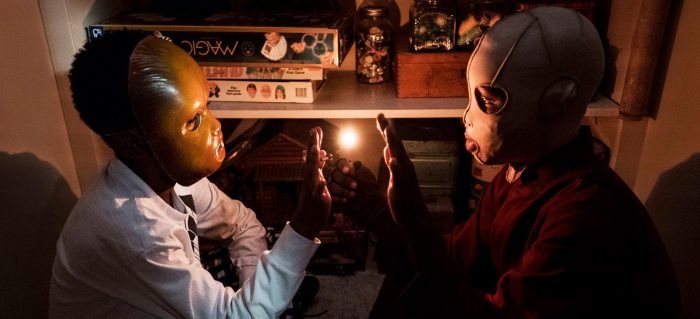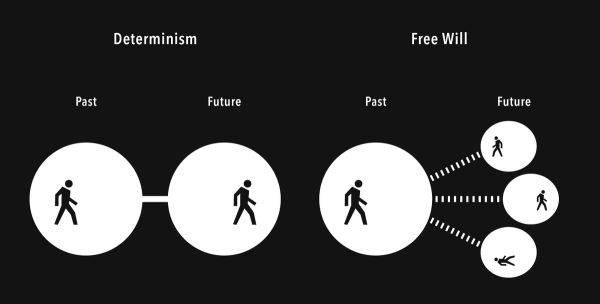US: Jordan Peele’s Sophomore Film Creeps Audience With Doppelgangers
Photo courtesy slashfilm.com
Jason confronts his evil self.
This is a spoiler-free review, so feel free to read to the end. From beginning to end, Us effectively captures the audience with its brilliant premise: a family on vacation in Santa Cruz must fend off doppelganger intruders with ambitious plans. Jordan Peele and the cast do an excellent job of setting the uneasy, creepy atmosphere well before the doppelgangers arrive, and once they do, the audience is left at the edge of their seats wondering who’ll make it through the night.
Jordan Peele, who directed, produced, and wrote Us, presents a purer horror film than Get Out, but also a less thematically-cohesive one. Although he skillfully includes the ingredients for a good horror movie, – a chilling score, compelling villains, and brutal kills – the ultimate concluding point falls short of effective social commentary. However, looking at Us as just a horror movie, one can appreciate the numerous well-choreographed scenes and the impressive acting, with one particular scene being the ending fight scene between Adelaide and her doppleganger (played by Lupita Nyong’o). Peele, perhaps inspired by Darren Aronofsky’s Black Swan, cuts between both women’s past ballet performances with quasi martial arts combat, making the fight beautiful to watch. Peele also pays homage to other classic horror films, such as The Shining with the overhead shot of the family driving through the forest to their vacation home.
Playing a character and its doppelganger is no easy task, but the cast of Us brilliantly pulls it off, with special praise for Nyong’o, whose performance was on par with Toni Collette in Hereditary. Throughout the movie, Nyong’o includes subtle clues that blend with her character while heightening the impact of the ending. Winston Duke, who plays the father in Us, delivers the moments of comic relief seamlessly without ruining the tense atmosphere. The supporting characters, the Tyler family, served as the careless, dumb, and brash horror movie characters that the audience is itching to see brutally killed. The screenplay in Us is excellently paced and well-written. The dialogue for the children in the movie sounded real and not like something a 40-year-old man would imagine children saying. The movie uses up its 1 hour 56 minutes efficiently and leaves no dull moments.
While Us isn’t thematically cohesive, it has its share of poignant themes. The film explores the many luxuries humans take for granted, as well as the power held in one’s voice. On a broader scale, Us could be a critique of the common fear of the “other” and the inherent evil inside each person. The many 1980s references, from the Hands Across America event to Michael Jackson’s Thriller prove to be more than easter eggs and add to the film’s creepiness. In fact, Peele was inspired to make Us after watching an old MTV commercial for Hands Across America, which he found cheerful yet disturbing.
Perhaps the most talked about element of the movie is its ending, which I won’t go in depth here, but the ending left many viewers somewhat unsatisfied with more questions than answers. Peele attempts to bring closure to the film by presenting ambiguity and interpretation, but doesn’t quite succeed at either. I wished Peele didn’t show the reveal he showed at the end, as people would be able to debate about that topic, but the reveal does create rewatchability. In fact, the lack of thematic cohesion could be an attractive feature to some viewers, as one can ponder what Peele was trying to say through this film.
Overall, with a stellar cast, intriguing premise, and stellar directing, Us is worth seeing in theaters and has a high rewatchability value. Although fans of Get Out may leave the theaters disappointed, Us stands on its own as a fun, slightly wonky, well-made horror film.
Rating: 4.6/5

Grade: 12
Years on Staff: 2
What do you like to do in your free time? Read, play tennis.
Why are you writing for The Flintridge Press? ...







